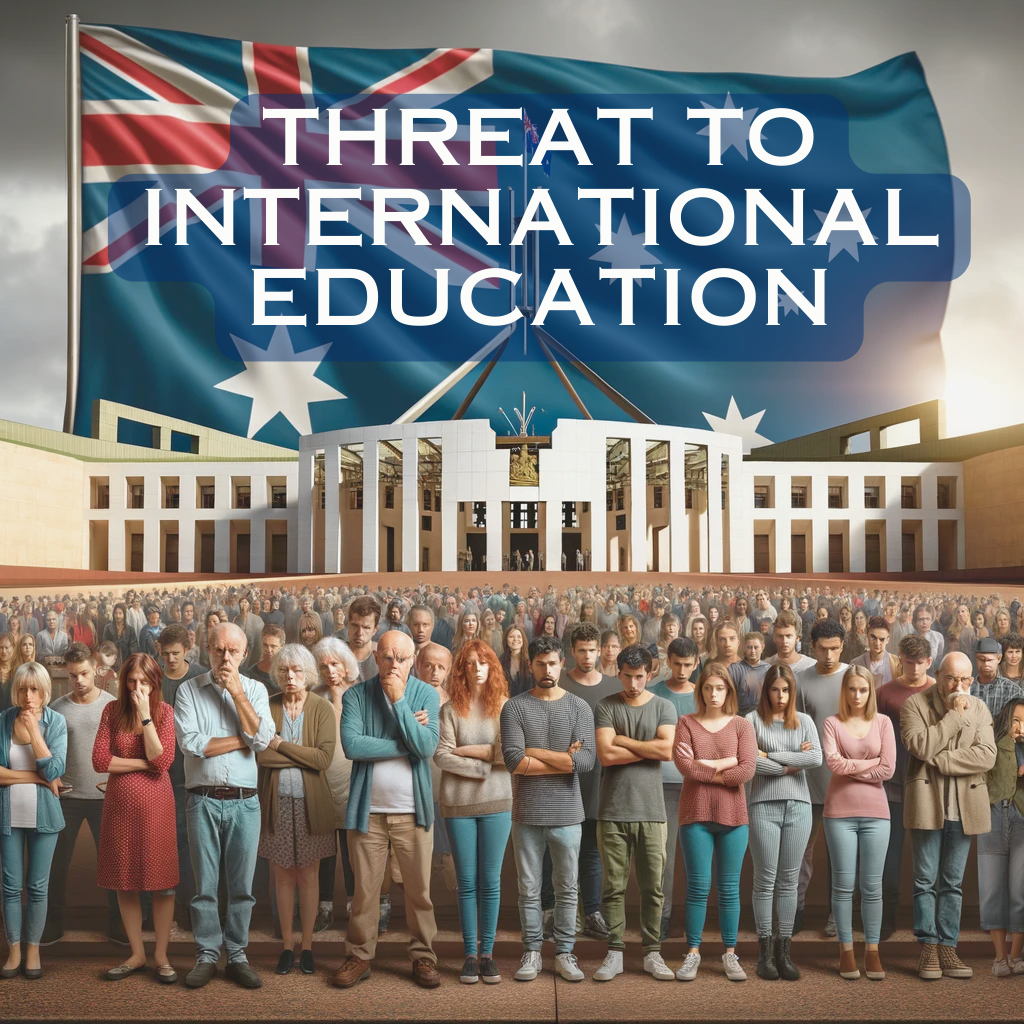Australia’s future as a leading higher education provider is under threat by government changes (and smart international competition). A 200-page interim report, released on 26 October 2023, has urged the tertiary sector to focus on quality and integrity to ensure sustainable international student growth within Australia. The report pointed to a number of factors that it said was “changing the shape of international education”.
As reported by the Australian and other media, the government is currently proposing recommendations that will have a significant impact on international education and providers operating colleges in Australia:
- Most of the training will be managed by TAFE
- Stringent compliance and review of private training providers
- A new fit and Proper test for college operators
- Regulation of education agents
- 12-month pause to accredit new CRICOS providers and to require to have already operated and delivered to domestic students for at least 12 months
Labor MP and committee member Julian Hill, said the sector needed reform in key areas, such as better regulation of private vocational education training providers, in order to avoid falling behind. “We need to prune the tree to save it and let it grow,” he said.
One of the report’s key recommendations is a five-year national plan, titled Team Australia, to build a stronger international education brand and a market diversification plan. The plan, if accepted, would see a stronger drive to attract students from sub-Saharan Africa, south-east Asia and South and Central America and a more integrated look at the country’s migration and education settings to attract the “best and brightest”. Unfortunately, not the whole “Team Australia” was included in the consultation.
Independent colleges have slammed a federal parliamentary committee report on international education, warning that its recommendations could be the “death knell” for Australia’s international skills training. Independent Tertiary Education Council Australia (ITECA represents tertiary education providers outside of the public system), Chief Executive Troy Williams said, “We are just starting to see the international skills training sector get back on its feet after the Covid-19 pandemic, with several high-quality providers wanting to support international students for the first time. The committee’s recommendation will set this recovery back.”
Mr Williams said ITECA shared the commitment of the committee to improve the quality reputation of Australian international education. He said another “highly problematic recommendation” from the committee was to pause international student recruitment to courses that were identified with quality and integrity issues and/ or of limited value to Australia’s skill needs, such as management and leadership courses.
“What the committee is saying in this context is that if an international student wants to pay their own way to study courses in, for example, project management, Australia doesn’t want them,” he said. “It’s an unfortunate recommendation that will send all the wrong signals to international students wanting to come to Australia to further their own life and career goals through a quality education.” ITECA is particularly furious at a recommendation from the committee that TAFE colleges should independently test the skills of international students who have been enrolled at private colleges that have been assessed as high risk.
Mr Williams said this was based on “the ideology that says the public provider is best”. “According to the government’s own data, on most metrics of student satisfaction, student course completion, and employer satisfaction, private RTOs (registered training organisations, also called colleges) outperform TAFE colleges,” Mr Williams said. He said if the committee’s recommendations were taken up “it may possibly be the death knell for the international skills training sector, that in 2022 supported 35.4 percent of all onshore international students enrolments – more than 264,500.”
The report, delivered last week by the trade subcommittee of the Joint Standing Committee on Foreign Affairs, Defense, and Trade, said the government should take “determined and focused action” against “bottom end” private colleges that were scamming the education system and breaking migration law. The recommendation follows the recent inquiry into the exploitation of Australia’s visa system by former Victorian police chief Christine Nixon, who said “bad actors” were operating in the immigration business “using family and business connections through networks of education agents, education providers, and travel agents, onshore and offshore”.
But the report makes a number of tough recommendations to “prune the tree” and address the “persistent and deep-seated” integrity issues within the vocational education and training sector. “Put simply, sustainable growth means Australia must more deliberately pursue ‘quality over quantity’”, the report said. “This may mean tough decisions to cut back on lower-quality students, especially in the lower end of the private VET market, and focus on market development and recruitment of high-quality students.”
The recommendations include a 12-month pause by the vocational training regulator Australian Skills Quality Authority (ASQA) to accredit new overseas student education providers and to require providers who seek to offer courses to international students to have already operated and delivered to domestic students for at least 12 months. It also recommended a boost to ASQA’s compliance and enforcement resources to ensure stronger oversight.
As the Independent Tertiary Education Council Australia’s Chief Executive Troy Williams said: “From time to time, governments consign to the waste-bin of history some of the more unsound recommendations that parliamentary committees make. There are several in this report that should meet this fate,” Williams said.
The recent events in Canberra are a sobering reminder of the difficulties that arise when political populism takes precedence over rational decision making. The sidelining of industry bodies and educational providers is not only disheartening but also detrimental to the very foundation of our educational system. If we want Australia to be the go-to place for international students to get an education, we need to put an emphasis on cooperation and honest communication among all parties involved. Only then can we hope to find a harmonious path forward, ensuring that the interests of international students and the quality of education are duly represented and protected.





Leave A Comment